Aneeta Patel aka Knitting SOS on forging community through handicrafts
‘It’s so visceral in human creatures to make something that wasn’t there before’: Aneeta Patel aka Knitting SOS on the joy of combatting consumerism through handicrafts.
On meeting Aneeta Patel, it became eminently clear that sewing and knitting are second nature to the Bow-based teacher and writer. The night before, her dreams had been consumed by the idea of sewing a water bottle holder. By the next day, she had already crafted three impressive prototypes.
On the table lay several balls of multi-coloured yarn, bursting with colours from deep fuchsia and purple to sapphire blue. Strings of bunting made of handwoven and hand-printed fabrics hung from her busy bookshelf, making the living room a haven of delicate, handicraft production.
It’s from her living room table where Patel, 48, hosts her knitting classes which she has been running since 2003. With over 43 years of experience, Patel is geared to aid knitters who crave a helping hand and non-judgemental camaraderie. As well as classes, Patel runs Knitting SOS, a free, monthly knitting group in east London, currently at Poplar Bakehouse.
The art of knitting, sewing and crocheting can seem intimidating to the uninitiated, and many assume they lack the fine attention to detail that handicrafts demand. Despite her undeniable talent, Patel is the first to admit that mistakes are natural and a fundamental part of the creative process.
‘I’m absolutely not a perfectionist, I don’t believe in it. I think it was something invented by people who hate human beings. What’s the point? If you want something perfect, then let’s bring on the machines. It’s not what I do.
‘I enjoy the process, the physical process. It’s so visceral in human creatures to make something that wasn’t there before. Going all the way back to the Stone Age, we want to make stuff, we need to make stuff.’
Patel’s pedagogical style is unique: she rejects the hierarchy of a traditional, teacher-pupil dynamic and instead promotes a collaborative atmosphere. ‘My goal is to not have ten people here all doing the same thing with me standing at the front of the table with a board’, she says.
Perhaps this attitude developed during the two years she worked at the Working Well Trust, teaching Bengali women with long-term mental health problems how to knit. In these classes, the therapeutic power of handicrafts fostered a sense of solidarity among the disparate women, who learnt to communicate through the intimate and tactile experience of making something together.
‘It was just really great. The idea of making something transcended language barriers and backgrounds and experience and age, and they were really welcoming of me. We learnt different ways to communicate with each other because some of them didn’t speak English, and I don’t speak Bengali, so it was just really valuable.
‘You show someone how to do something, and that means the words aren’t always necessary, and everyone can admire something beautiful.’
After teaching for several years, Patel wrote two knitting books, Knitty Gritty (2008), for beginners, and Knitty Gritty – The Next Steps (2012), for intermediates. After introducing the basics, Patel gently guides her readers through knitting with beads and lace and provides step-by-step instructions on how to knit Fair Isle and intarsia patterns.
I’m absolutely not a perfectionist, I don’t believe in it. I think it was something invented by people who hate human beings. What’s the point? If you want something perfect, then let’s bring on the machines.
ANEETA PATEL
While handicrafts surged in popularity in the 21st century, the textile arts have been practised since time immemorial. The oldest knitted artifacts are socks from Egypt, dating from the 11th century. After originating in the Middle East, knitting spread to Europe and later to the Americas with European colonisation. The ancient art of sewing is even older, dating back to the Paleolithic era when Stone Age people sewed fur and leather with needles made out bone.
While men and women knitted professionally for centuries, the craft became laden with gendered stereotypes towards the end of the Victorian Age. The Industrial Revolution heralded the arrival of steam-powered knitting machines, and hand knitting became a domestic hobby associated with idle femininity in the public imagination.
But since 2000, the so-called ‘domestic crafts’ have undergone a radical revival and knitwear routinely populates the pages of Vogue and Elle. Pioneers such as Vivienne Westwood and Alexander McQueen began incorporating knits in their collections, and a new generation of avante-garde designers are experimenting with the underestimated craft.
While knitwear is a firm staple of high-fashion, generations young and old are also drawn to knitting as a radically anti-consumerist act. Many crave an ethical alternative to the fast fashion industry, which relies on exploitative, low-cost labour and is responsible for about 10% of global carbon emissions per year.
With the mentorship of teachers like Patel, many find themselves able to ditch the highstreet for the more environmentally sustainable option of knitting, sewing and crocheting at home. For Patel, handicrafts aren’t only guilt-free, but a form of individual, creative expression. She said:
‘There was a bit of a Renaissance of it in different cities around the world. People realising that they want to do something more than just work, they want to do something more than just buy stuff, they want something unique.
‘I am not sure about fashion, I don’t understand it, I don’t understand how people don’t find it enormously stressful going into a shop and trying stuff on. It’s just designed to make us all feel terrible. And then you have to buy what is in the shops, and the fashion of the day might not be your style.
‘If I find something that I feel comfortable and pretty and confident in, and I can make it out of a piece of fabric that I chose, that I specifically loved, or from a curtain that I found in a charity shop for a couple of quid, then, yay me.’
It was during her cancer treatment in 2019 that Patel began to seriously contemplate her relationship with the environment. ‘When you’re in the hospital for half a dozen appointments a week having chemo, the amount of plastic that’s used is bonkers’, she said.
‘I don’t blame the NHS, this is what they have to do to keep things clean and safe. But I wanted to personally try and offset it in some way. All this plastic that was being used to keep me alive, I wanted to do something that would offset that.’
After leaving hospital, Patel founded WasteEnders, a party kit lending scheme aiming to make children’s parties a little bit more eco-conscious for parents on a budget. As a mum of two, Patel knows from first-hand experience the amount of needless plastic waste children’s parties can produce. With WasteEnders, Patel aims to discourage parents from buying single-use plastic, 12 million tonnes of which ends up polluting the world’s oceans every year.
To reduce the eco-costs of parties, Patel lends out high-quality, reusable crockery and hand-sewn, upcycled bunting to fellow parents in the local community. Vitally, WasteEnders is completely free, and Patel is committed to keeping it that way.
‘WasteEnders has been going for about two and a half years, and in a year we can collectively save 10 thousand pieces of single-use plastic.
‘Being eco-friendly isn’t accessible. The products are more expensive. To buy organic, that’s beyond my budget. To buy the specialised products and to go to zero-waste shops, that’s not accessible for me, I imagine it’s not for a lot of people.
‘So I could charge for the party kit, but for me, it has to be cheaper than a generic pound shop. And the only way to make it cheaper than a pound shop is to make it free.’
Since 2018, Patel has balanced her knitting classes with working at Action Village India, a Dalston-based charity that supports NGOs on the ground in rural India. As part of the charity, Patel set up an Ethical Giftshop, offering customers a wide array of beautiful, hand-crafted items made by disadvantaged artisans in rural India.
The Ethical Giftshop makes it easier for consumers to shop ethically and sustainably on a budget. By buying a braided metal bracelet, a hand-painted spice box or colourful Khadi bunting from the shop, you know your purchase is supporting someone’s journey out of poverty.
Even if you’re not ready to ditch the high street for your own set of knitting or sewing needles, Patel insists handicrafts are a vital lifeline in the digital age, connecting us back to our ancient roots: ‘Anything that you make with your hands, that is real, that you can hold in your hands, it appeals to something visceral in us as human creatures.’
If you enjoyed this piece, you might like our article about the Hackney Wick entrepreneur helping freelancers fight mental health stigmas.

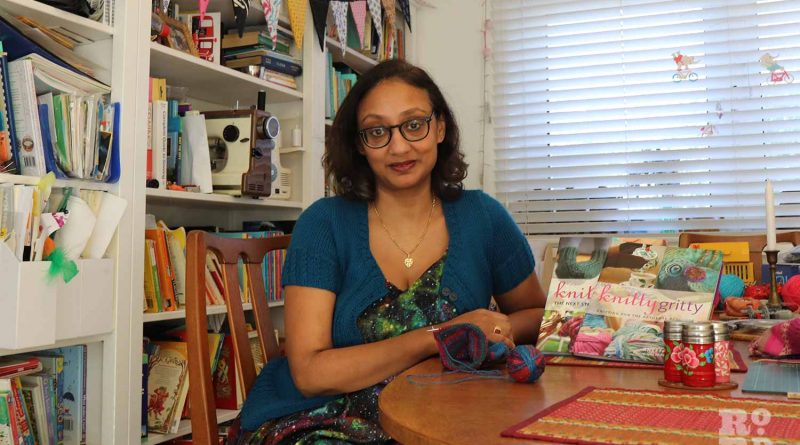
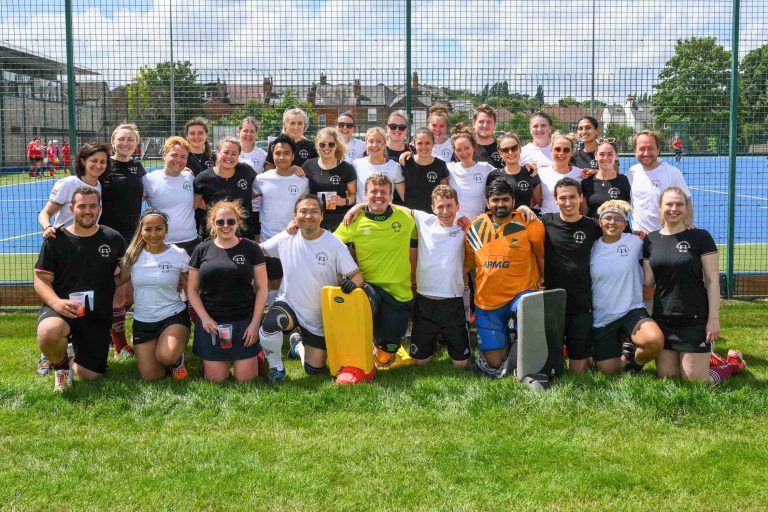


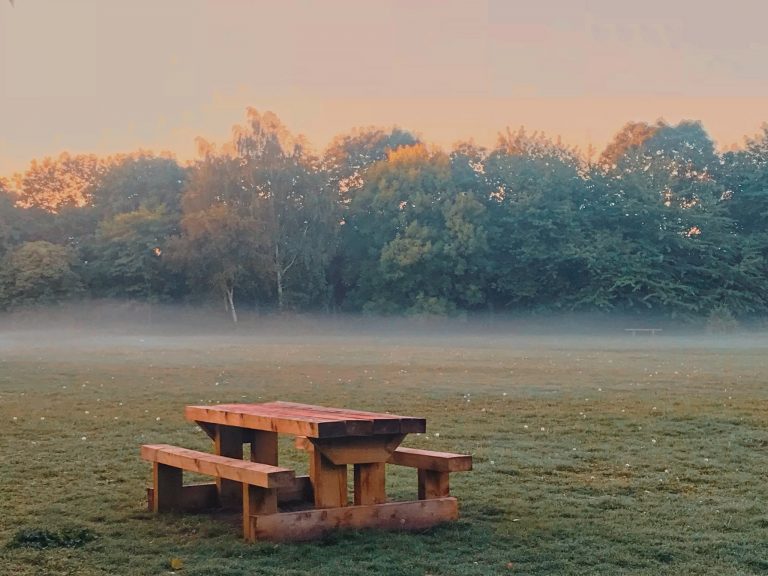
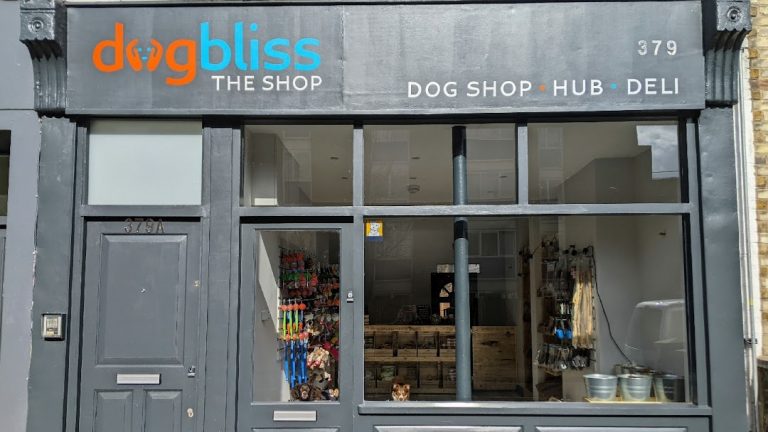
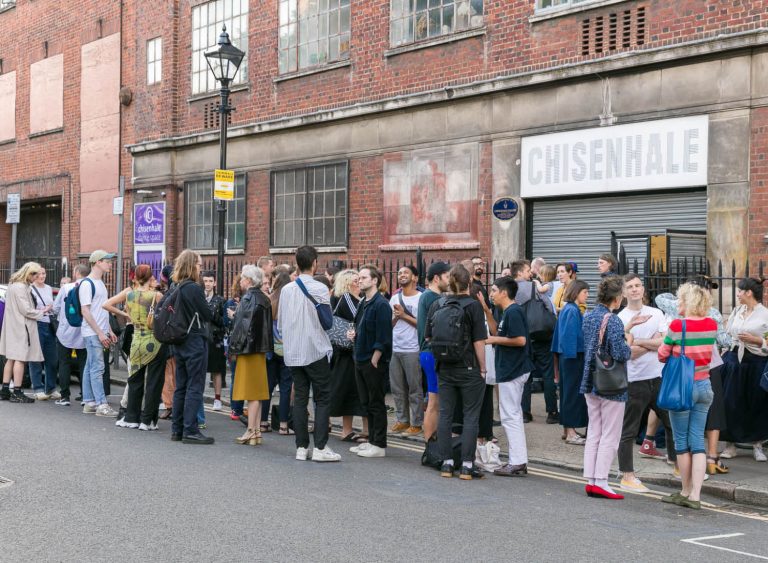

Great artilcle.
Nice Article!!!